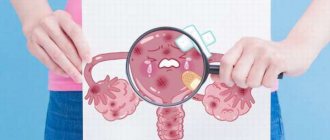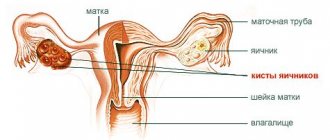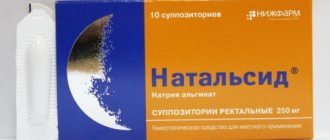Lubricants for pregnancy planning, benefits and harms, composition features and use for the specific purpose of conceiving a child. Useful and harmful factors for conception, contraindications to the use of lubricating gels.
Lubricants and the effect on conception: the pros and cons
Couples use vaginal lubricants to increase sexual desire and also to reduce discomfort during sex.
The use of lubricants is also recommended by manufacturers to speed up the process of conceiving a child. At the same time, the negative effect of lubricants on a woman’s chance of becoming pregnant has been proven.
Lubricants for pregnancy planning
Intimate lubricants contribute to the conception of a child due to the beneficial properties present in the composition. At the same time, lubricants also have disadvantages.
Benefit
Intimate gels have the following positive properties when used:
- protect the vaginal mucosa from microcracks during intercourse;
- reduce irritation in the intimate area;
- improve friction between the genitals;
- reduce the risk of infections entering the body;
- reduce pain during intercourse;
- make sexual contact comfortable.
Harm
Along with their advantages, lubricants have a negative effect in the following situations:
- reducing the movement of the sperm tail, which prevents possible conception;
- provoking an allergic reaction due to the esters (parabens) present in the composition;
- possible influence on the development of vaginal candidiasis (thrush) due to the presence of glycerin in the composition of some products.
Risks of interrupted sexual intercourse
Partners who prefer a method of contraception such as coitus interruptus should understand that such a decision has consequences. For a man, the main ones come down to the following aspects:
- high probability of premature ejaculation;
- dysfunction of internal organs;
- the possibility of neurotic disorders against a background of constant stress;
- decrease in potency level.
The main problem is that interrupting an intimate act a few moments before the highest pleasure is a rather difficult task that requires practice and iron self-control. Forced continuous control sharply inhibits the natural process of ejaculation, and in addition leads to severe psychological discomfort.
For a woman, the method of interrupting sexual intercourse is fraught with consequences such as:
- nervous tension and inability to relax due to fear of ejaculation inside the vagina;
- risk of unplanned pregnancy.
In addition, we should not forget that an unprotected intimate relationship entails unpleasant and, at times, sad consequences due to infection with various sexually transmitted diseases. In any case, doctors recommend protecting yourself with a condom. This is the safest and most affordable method of contraception today.
The use of gels for pregnancy planning
Intimate lubricants are used to conceive a child.
However, they should not have the characteristics of contraceptives.
A number of gels (“Pre-Seed”, “Aktifert”) have a stimulating effect, increasing the speed of progress after ejaculation.
In 70% of couples, there is an absence or weak secretion of their own lubrication during arousal and sexual intercourse. Vaginal dryness slows down the process of sperm moving through it. To speed up the process, as well as to reduce friction and pain, intimate gels that do not contain glycerin are used.
Sperm quality depends on food9
For conception, it is not enough that only the woman takes care of her health, but the man must also take care of it. To improve sperm motility, the diet should include fruits and vegetables, lean meat and fish, wheat, mushrooms, chicken eggs, and potatoes. Try not to overuse spicy, fatty and salty foods.
If you cannot get pregnant on your own within several months, you need to consult a doctor. The couple undergoes various tests, and then, based on the results, the doctor prescribes a specific treatment.
There is also a psychological side to this. When a person focuses on pregnancy for a long time or, conversely, once strongly did not want it, a defensive reaction is triggered in the brain. It blocks all body functions and prevents conception. After all, the human brain is a whole huge program. Therefore, it is better to relax and give yourself completely to nature.
The effect of lubricant on conceiving a child
Intimate gels can affect the conception of the fetus. Much depends on the composition of the lubricant. At the same time, it is necessary to pay attention to other factors.
Features of the composition
There are three most common types of lubricants commercially available:
- Aquatic. Contains water and gel.
- Silicone. Contains silicone. They prolong sexual intercourse due to the fact that they do not dry out for a long time. A number of products contain fragrances that provoke allergies.
- Oily. Contains oils and esters as a base. Aggressive lubricants that destroy sperm. They are less common than silicone and water gels.
What can help conception?
When planning a pregnancy, you should pay attention to the nutrition of both partners.
It is also recommended to give preference to water-based lubricants without fragrances and glycerin. Due to it, the acidic environment inside the organ, which is potentially harmful to the health of sperm, is neutralized.
Before sexual intercourse and using a lubricant, a woman is recommended to syringe the vagina with a soda solution.
It is also necessary to devote more time to foreplay. Their optimal duration is 15-20 minutes. In this way, maximum stimulation of partners is achieved, which contributes to the additional release of their own lubricant.
What harms conception?
When planning pregnancy, the following factors are harmful:
- use of aggressive spermicidal lubricants;
- repeated sexual intercourse during the day;
- stress;
- physical fatigue;
- taking antibiotics, contraceptives and alcohol;
- non-classical positions during intercourse (standing sex reduces the likelihood of conception).
Can lubricant be used during pregnancy?
» Pregnancy » How do lubricants affect conception?
Today we will share useful information about whether lubrication affects the conception of a child. We will talk about intimate lubricants - lubricants that many couples use to make vaginal contact more comfortable. The material will certainly be of interest to those women who want to conceive a child and actively use intimate lubricants during sexual intercourse.
general information
https://www.youtube.com/watch?v=ytdevru
Vaginal lubricants are often used in pairs when, for some reason, the vaginal mucosa does not secrete the required volumes of mucous secretion.
In medicine, this phenomenon is called vaginal dryness and can develop as a congenital factor - when epithelial cells do not secrete the proper amount of mucus, or as an acquired factor, for example, with atrophic vaginitis.
In the latter case, atrophy of the epithelium occurs, the mucous membrane becomes thinner and secretes a minimal amount of natural lubricant.
Vaginal dryness is especially hard on women who have been trying to get pregnant for a long time. This condition becomes a really serious problem, since the frequency of sexual intercourse increases, and the process itself, without the use of lubricants, is very unpleasant.
When attempts to get pregnant increasingly end in failure, and the exact reasons for this are unknown, the question inevitably arises - can intimate lubricant affect the conception of a child?
About 75% of couples who are “trying to get pregnant” complain of vaginal dryness and more than half of them use lubricants. Laboratory studies have shown that when mixed with sperm during sexual intercourse, intimate lubricants can actually affect the integrity and function of sperm, thereby reducing the likelihood of successful fertilization.
In addition, the components of vaginal lubrication affect the mobility of male cells, suppressing it. It should be noted that any lubricant has a similar negative effect, but with different strengths.
Some lubricants have almost no such characteristics, but for others they are strong enough to influence the conception of a child in the physiological environment of sexual intercourse.
Of course, we are talking about lubricants without a special spermicidal effect.
The influence of vaginal lubricant can damage this protein complex and thereby disrupt the structure of the DNA molecule or completely destroy it. Thus, even if the sperm reaches the egg, it is not capable of successful conception.
We invite you to familiarize yourself with: Costumes for newborns (65 photos): warm knitted models for girls, woolen and plush, in the form of a bunny and a bear cub
We also must not forget about allergic reactions that intimate lubricants can cause in some women.
Experiment
https://www.youtube.com/watch?v=ytaboutru
In 2008, American scientists conducted a study that could answer the question - does lubricant affect the conception of a child.
The researchers compared four vaginal lubricants: FemGlide, Pre-Seed, Replens and Astroglide to determine their effect on sperm motility.
Three other lubricants - FemGlide, Pre-Seed and KY Jelly - were tested to evaluate their effects on DNA damage in male cells. 13 male donors with known normal fertility provided sperm samples for testing. The experiment consisted of two parts.
In the first part of the study, testing sperm motility, samples were diluted in a 10% solution of FemGlide, Pre-Seed, Replens and Astroglide. This percentage was chosen as the most identical to that which occurs in the vagina during ejaculation.
After 30 minutes, the solutions were assessed using a microscope at human body temperature.
These time frames were also chosen based on data showing that for most sexual acts, it takes sperm exactly 15-30 minutes to pass through the uterus and meet the egg.
The second part of the experiment was to show the results of the effect of artificial lubricant on sperm DNA. 10% solutions were cultured for 4 hours at body temperature. After the allotted amount of time, samples were analyzed for the percentage of damaged fragmented DNA.
As for the second experiment, FemGlide and KY Jelly significantly damaged the DNA of male cells - by 10% or more compared to the control. Pre-Seed lubricant showed some damage, but not enough to significantly affect conception.
Damage to sperm and suppression of their natural characteristics are still pronounced when using intimate lubricants, which is probably due to the non-physiological properties of lubricants.
In addition, we must not forget that this kind of research was carried out using American products, the quality of which is generally trusted, not to mention the Chinese lubricants with which the Russian market is flooded.
We suggest you read: Panangin during pregnancy at different stages: is it possible or not?
No one has studied them, and what happens to the unfortunate male seed under their influence is still a big question.
However, artificial lubricants “on the spot” do not destroy the horde of sperm and their effect, although manifested, is not so pronounced that it can be said that they become the cause of infertility. In general, optimal sperm survival is determined by the fulfillment of very specific conditions.
For example, if the vaginal environment is too acidic or not acidic enough, male cells are already adversely affected.
https://www.youtube.com/watch?v=ytcreatorsru
Therefore, even using your own saliva as a lubricant, which has a pronounced alkaline reaction, can impede the activity of sperm and this fact will negatively affect the activity of sperm.
conclusions
So, does lubrication affect conception? Is there a connection between vaginal lubricants and fertility?
Many doctors still recommend lubricants or saliva to infertile couples who experience vaginal dryness.
In this study, the researchers only found that certain lubricants, such as PreSeed intimate moisturizer, had minimal negative effects on sperm motility and DNA quality compared to FemGlide, Astroglide, KY Jelly and Replens.
Of course, the results of this study are not enough to definitively say that the chances of getting pregnant with these products are significantly lower or that one brand is better than another.
In 2012, another study asked women to keep a diary of their use of different vaginal lubricants while trying to get pregnant.
The results showed that the probability of a successful pregnancy, pregnancy and birth of healthy offspring in the experimental group is similar to that among women who do not use intimate lubricant gels in their practice at all.
In conclusion, it is worth noting that the use of natural plant-based remedies significantly increases the likelihood of conceiving a child during the first months of trying and regardless of whether vaginal lubricants are used or not.
Lubricants for pregnancy planning, benefits and harms, composition features and use for the specific purpose of conceiving a child. Useful and harmful factors for conception, contraindications to the use of lubricating gels.
We invite you to read: All about folic acid during pregnancy: significance and indications
Couples use vaginal lubricants to increase sexual desire and also to reduce discomfort during sex.
The use of lubricants is also recommended by manufacturers to speed up the process of conceiving a child. At the same time, the negative effect of lubricants on a woman’s chance of becoming pregnant has been proven.
This is a material in the form of a liquid gel, the use of which facilitates friction during sexual intercourse. Most often lubricants are of organic origin. But synthetic lubricants are commercially available.
Intimate lubricants contribute to the conception of a child due to the beneficial properties present in the composition. At the same time, lubricants also have disadvantages.
Benefit
Intimate gels have the following positive properties when used:
- protect the vaginal mucosa from microcracks during intercourse;
- reduce irritation in the intimate area;
- improve friction between the genitals;
- reduce the risk of infections entering the body;
- reduce pain during intercourse;
- make sexual contact comfortable.
Along with their advantages, lubricants have a negative effect in the following situations:
- reducing the movement of the sperm tail, which prevents possible conception;
- provoking an allergic reaction due to the esters (parabens) present in the composition;
- possible influence on the development of vaginal candidiasis (thrush) due to the presence of glycerin in the composition of some products.
Intimate lubricants are used to conceive a child.
However, they should not have the characteristics of contraceptives.
A number of gels (“Pre-Seed”, “Aktifert”) have a stimulating effect, increasing the speed of progress after ejaculation.
Intimate gels can affect the conception of the fetus. Much depends on the composition of the lubricant. At the same time, it is necessary to pay attention to other factors.
Features of the composition
There are three most common types of lubricants commercially available:
- Aquatic. Contains water and gel.
- Silicone. Contains silicone. They prolong sexual intercourse due to the fact that they do not dry out for a long time. A number of products contain fragrances that provoke allergies.
- Oily. Contains oils and esters as a base. Aggressive lubricants that destroy sperm. They are less common than silicone and water gels.
When planning a pregnancy, you should pay attention to the nutrition of both partners.
https://www.youtube.com/watch?v=upload
It is also recommended to give preference to water-based lubricants without fragrances and glycerin. Due to it, the acidic environment inside the organ, which is potentially harmful to the health of sperm, is neutralized.
Tags: pregnancy, what kind, possible, lubricant
About the author: admin4ik
« Previous entry
Contraindications to the use of lubricants
These funds do not have any explicit prohibitions on their use. At the same time, the only contraindication to their use is personal intolerance to individual components of lubricant gels.
Also, the material is not recommended for use if a person has any allergic reactions.
Research emphasizes that any lubricants have a negative effect on sperm, reducing the likelihood of couples conceiving a child. At the same time, water-based lubricating gels with a neutral composition are available on sale, which do not have a broad spermicidal effect. These drugs do not provoke massive death of germ cells and do not significantly affect sperm quality. Such lubricants can be used when couples intend to conceive a child.
About male lubricant
Sperm is not the only fluid that comes out of a man's penis during sex. There is another one - popularly it is called “mucus”, “lubricant” or “Cooper’s fluid”, in the language of science it is called “pre-ejaculate”. This fluid is a viscous mucous mass and is released from the penis immediately before ejaculation. What is its function?
Pre-ejaculate plays an important role in reproduction. The fact is that the female vagina by nature has an acidic environment, unfavorable for the seed. Cooper's fluid, released before ejaculation, neutralizes the effects of this acidic environment. The amount of this fluid in men is an individual issue, depending on the condition of the man’s body and the health of his reproductive system.
For some, this fluid may not be released at all, while for others, on the contrary, it may be released in large quantities. One way or another, laboratory tests confirm the presence of a small number of sperm in the pre-ejaculate. This may already be quite enough for conception to occur. There is another type of male lubricant, consisting of a mixture of sebaceous gland secretions and dead epithelial cells.
Getting pregnant from male lubricant: myth or reality?
As mentioned above, the presence of sperm in Cooper’s fluid has been confirmed by laboratory tests. And, as you know, just one sperm is enough to conceive. Therefore, to the question “can you get pregnant from a man’s lubricant?” The answer is obvious - it’s definitely possible.
If you pose the question a little differently and find out what the probability of getting pregnant from male lubricant is, it is not easy to get a definite answer. There is a possibility, but, naturally, the risk is several orders of magnitude lower than with ejaculation in the vagina. It all depends on the amount of lubricant itself, on the percentage of sperm in it, as well as on the viability of these sperm that enter the lubricant not from the seminal glands.
Sperm and pre-ejaculate are produced by different glands, but when “Cooper’s fluid” passes through the canal, remnants of semen from a previous ejaculation can enter it. Usually the amount of this seed is insignificant, and the sperm themselves are not particularly active and have little ability to conceive, so when asked whether it is possible to get pregnant from male lubricant, some doctors give an unequivocal negative answer.
However, we should not forget about the individual characteristics of the body. If a man is healthy and without bad habits, the likelihood of getting pregnant from his lubricant is much higher than other cases. Only expensive laboratory tests can tell you the likelihood of getting pregnant from the lubricant of a given partner.
Don’t forget about another type of liquid that was mentioned earlier - a liquid called “smegma”, the composition of which absolutely eliminates any chance of getting pregnant.











